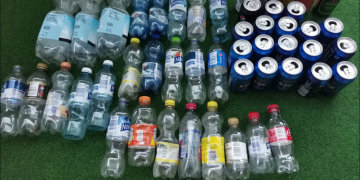Kenya’s higher education sector faces a growing crisis as thousands of graduates are leaving universities each year with a degree offering no promise of formal employment.
A review of the 2025 course trends reveals that several disciplines, once seen as prestigious, are now classified as unmarketable due to a mismatch between training and employment opportunities.
Degree in Chemical Engineering
Among the most affected are graduates of Chemical Engineering, whose qualifications suffer from limited local industry demand and low international recognition of Kenyan engineering degrees.
Mass Media and Journalism, and Political Science degree
Mass Media and Journalism, once a popular choice among creative youth, have also lost their appeal. The proliferation of digital platforms and content creation has shifted the focus towards talent and skills, leaving formally trained journalists struggling to find employment.
Additionally, Political Science graduates face a similar predicament, with few institutions offering roles that match their qualifications. Many end up in unrelated sectors, often underemployed or jobless altogether.
Education courses
In the education sector, certain teaching subject combinations, such as Business, History, and Christian Religious Education (CRE), have been saturated. The Kenya Universities and Colleges Central Placement Service (KUCCPS) reports a surplus of trained teachers in these areas, leading to long job-hunting periods and limited vacancies.
Courses in Sport Science and Physical Education are also losing viability due to limited institutional demand and constrained government budgets, which affect recruitment in schools and sports departments.
Psychology and Counselling, while valuable in principle, suffer from low public awareness and minimal formal employment structures. Similarly, Theology degrees hold little market value, as most religious institutions do not require formal theological qualifications to ordain leaders.
Criminology and hospitality degree
Criminology has also emerged as a course with low absorption rates, as most security firms and law enforcement agencies do not require specialised academic training in the field.
Also Read: Do’s and Donts: KUCCPS Responds to University Placement Revision Portal Queries
In hospitality, oversupply has rendered many graduates jobless or forced to seek work in unrelated sectors. A similar fate meets those with Art-related degrees, who must navigate a fiercely competitive creative market with scarce formal job opportunities.
Further, advancements in automation have reduced the demand for graduates in Library and Records Management, as digitisation takes precedence in information handling.
Other minor courses
Environmental Science, Forestry, and Animal Husbandry are also cited as areas with few job openings, with employers often sidelining graduates in these fields.
Also Read: KUCCPS, KIMC and Competition Authority Announce Job Opportunities
Development Studies, Applied Linguistics, and Gender Development are facing near-extinction in terms of student interest, with some of these courses attracting no applicants at all during the latest KUCCPS placement cycle.
As the job market evolves, education stakeholders are being urged to align university offerings with national and global employment trends to curb graduate unemployment.
Follow our WhatsApp Channel and X Account for real-time news updates.













































































